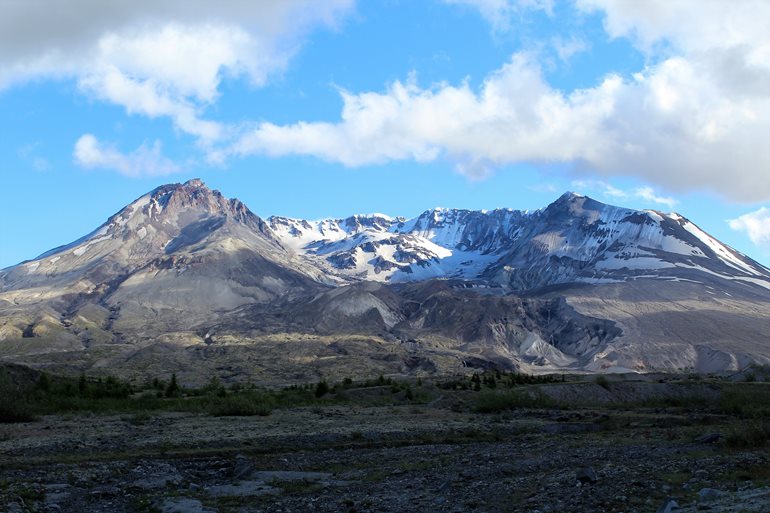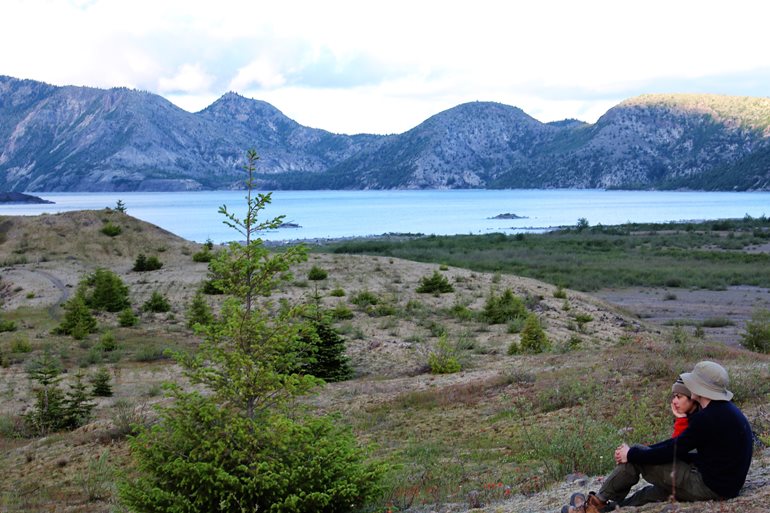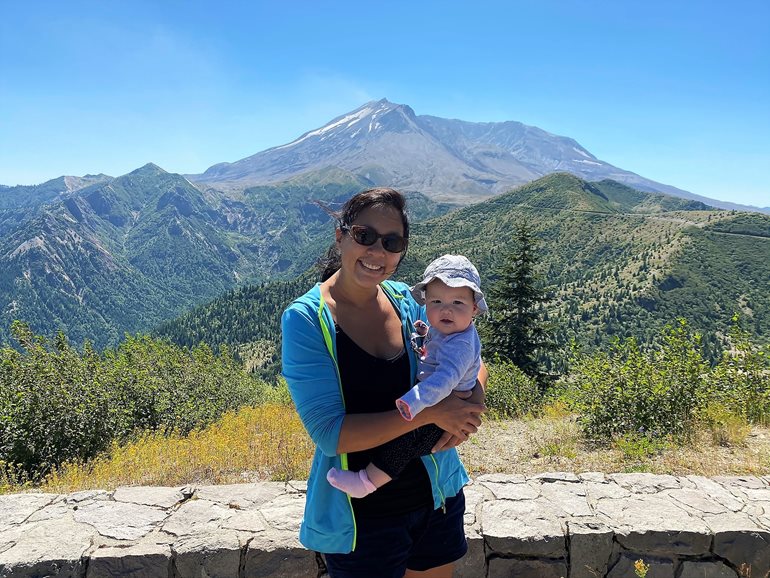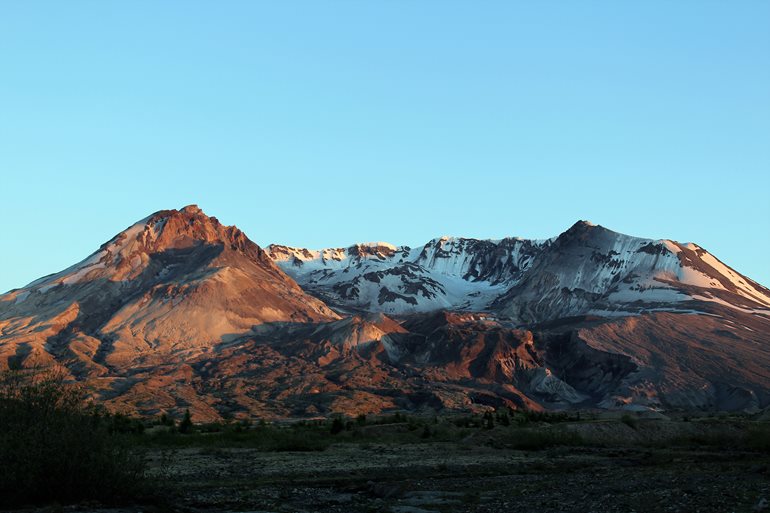
By Douglas Esser
The most memorable college experience for several recent University of Washington Bothell students was the research they conducted in the blast zone of Mount St. Helens.
Ada de la Cruz, Katey Queen, Isabel Rodriguez and Alex Wachter were the latest students of Dr. Cynthia Chang to conduct research on plant recovery near the crater of the southwest Washington volcano known for its 1980 eruption. And, they are likely the last for a couple of years because of a disruptive road project.
Coping with COVID-19 restrictions, the four managed repeated trips in the summer of 2020. They tended 40 research plots and tracked the growth of scattered noble firs and other slow-growing plants in an alpine meadow of moss, grass and flowers.
That dam road
Chang, associate professor in the School of STEM’s Division of Biological Sciences, started her Mount St. Helens research in a postdoctoral position at the UW in Seattle. She continued when she joined the UW Bothell faculty in 2014 and brought in students from her research group. They built on data compiled by other researchers, notably Roger del Moral, a UW biology professor who studied the blast zone for 30 years.
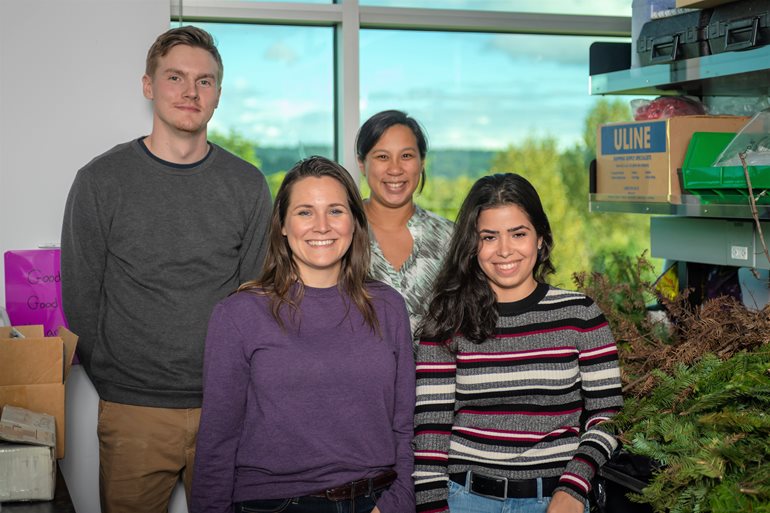
Wachter conducted research at Mount St. Helens over three summers, Queen and Rodriguez two and de la Cruz one. Wachter and Queen participated in the research as Mary Gates scholars. In all, Chang has had about 10 students involved in Mount St. Helens research over the years. “I’m so proud of them,” she said.
Chang plans no research at the volcano this summer and probably none in 2022. Scientific work has been disrupted by U.S. Forest Service plans to build a road for heavy equipment needed for work on the outflow of Spirit Lake on the volcano’s flank. If the landslide damming the outflow suddenly gave way, it would send a flood of water down the Toutle River. In addition, Chang will be on sabbatical in the next academic year. She hopes research can resume in 2023, depending on grant funding.
Socially distanced fieldwork
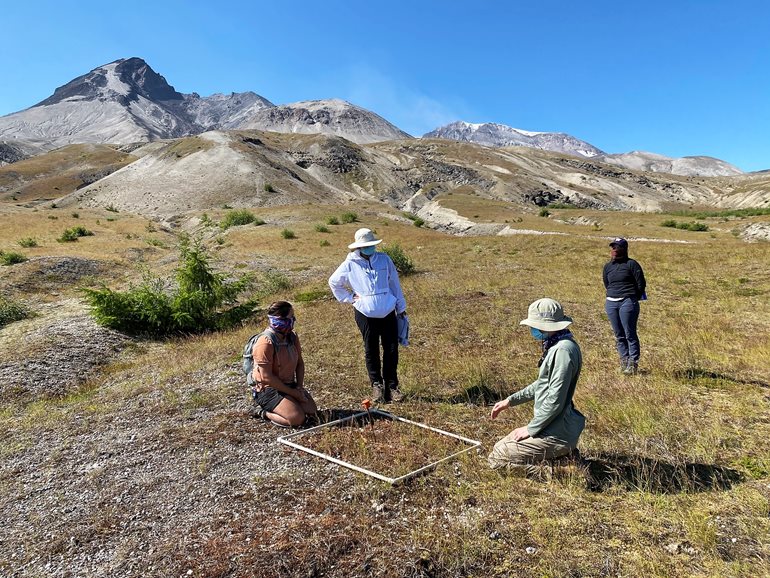
Never an easy field trip, the Mount St. Helens research in 2020 was complicated by the coronavirus pandemic. Queen led the expedition. Recent graduates Wachter and Rodriguez returned as volunteers. Ada de la Cruz, a senior majoring in Biology, was a newcomer.
The first thing Queen did was draft 17 pages of safety guidelines. They spelled out how to do everything while wearing masks, socially distancing and hand sanitizing often.
There was no more driving together, sharing a tent or communal cooking. It was separate cars, separate tents and separate cooking utensils. Maintaining a 6-foot distance complicated the close teamwork involved in a down-in-the-dirt species tally or crawling under a noble fir’s branches.
Queen said, “The data person taking down the information was like a hall monitor: Back up!”
Mentoring the four students these past few years, Chang said it was amazing to watch them learn, grow and become scientists in their own right.
“They started in my lab with so much passion and excitement. To see that translated into something concrete — a research project, a paper they can be proud of, conference presentations, getting more involved in the scientific community and their own career goals — has been wonderful to watch,” Chang said.
‘All the things I want to have’
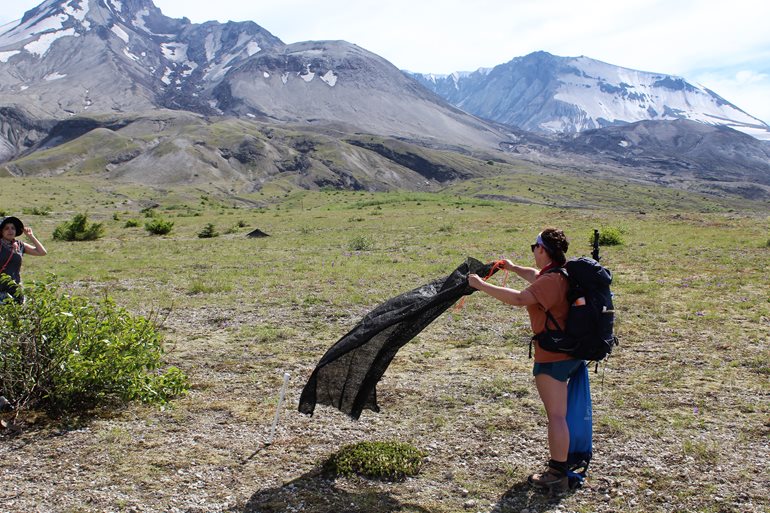
Backpacking on the first visit of the season, Queen noticed a few garter snakes warming up, even as snow clung to rock crevices. Purple lupine, a common wildflower that had covered the area the year before, had suffered a die-off, possibly because of an insect infestation. The ground was mostly bare pumice. Even 40 years after the volcano’s eruption, most of the trees were shorter than the 5-foot-2 Queen.
Over time, the forest that was blown away by the volcano will slowly regrow. The researchers are documenting how tree shade and carbon from fallen needles affect other plants. “By manipulating the ground cover,” Queen said, “we’re trying to figure out what is the most influential factor of the noble fir on the plant community.”
Queen graduated in December 2020 with a degree in Biology. She now is pursuing a master’s degree in environmental science at Western Washington University. Interested in watershed studies, Queen wants to work as an ecologist who delineates watersheds or who helps restore culverts to salmon streams.
“These research opportunities — when you’re taking the classroom concepts and actually applying them — are monumental,” Queen said. “I learned so much, not just about ecology but about being a team leader, about handling adversity, thinking on my feet, safety — all those things that eventually are going to be part of a career that I want to have.”
‘Work my way up’
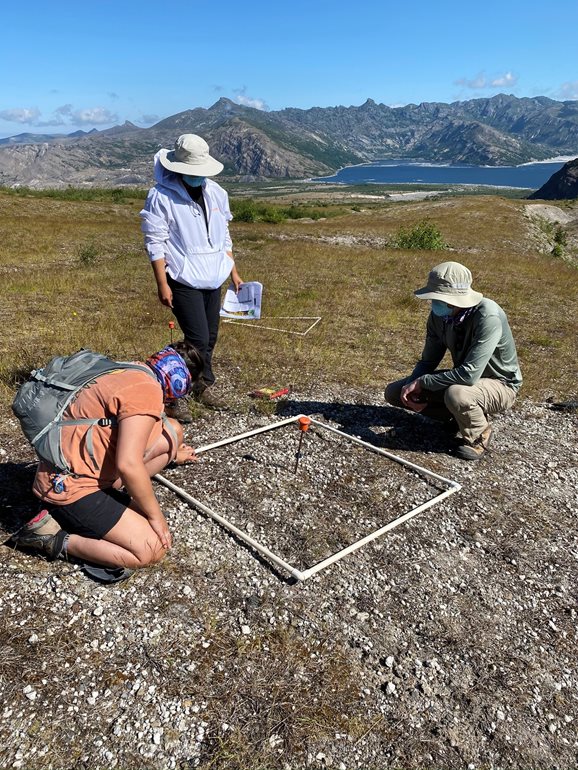
After completing species counts, de la Cruz knows that “no small thing goes unnoticed. Even the smallest plant can count.” She remembers seeing lots of caterpillars and spiders. She also learned what scientific fieldwork is like.
“It helped me narrow down more specifically what I’d like to do. It was good for me to have a hands-on ecological experience to see if that’s the route I wanted to go,” she said. “It’s great to learn how to work with a small team — learning how to set your data, analyze it, put it all together.”
Graduating this summer with a degree in Biology, de la Cruz is looking to start a job at a lab in the Seattle area “and work my way up from there.”
‘A lot of hands-on experience’
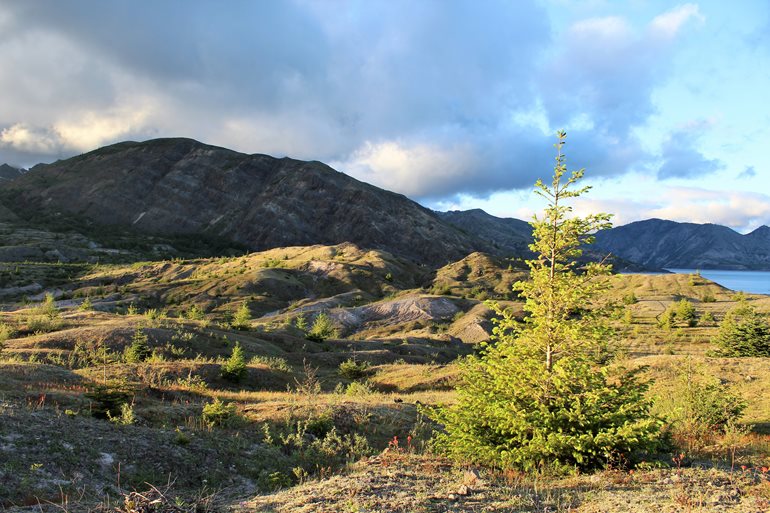
Rodriguez graduated with her Biology degree in spring 2020. Her main job on the mountain was recording data.
“I was able to get a lot of hands-on experience in fieldwork and data analysis, a great skill set that I’ve been able to add to my resume,” said Rodriguez, who also conducted fieldwork with Dr. Jeff Jensen, teaching professor, counting kokanee in Lake Sammamish streams.
“All of these opportunities have been a great way to get field experience,” she said.
This spring, as she looks for new opportunities, Rodriguez has a temporary data analysis job on the Oceanic Society’s sea turtle conservation project. She learned about the project through Dr. Sara Maxwell, assistant professor.
‘Beyond what I would imagine’
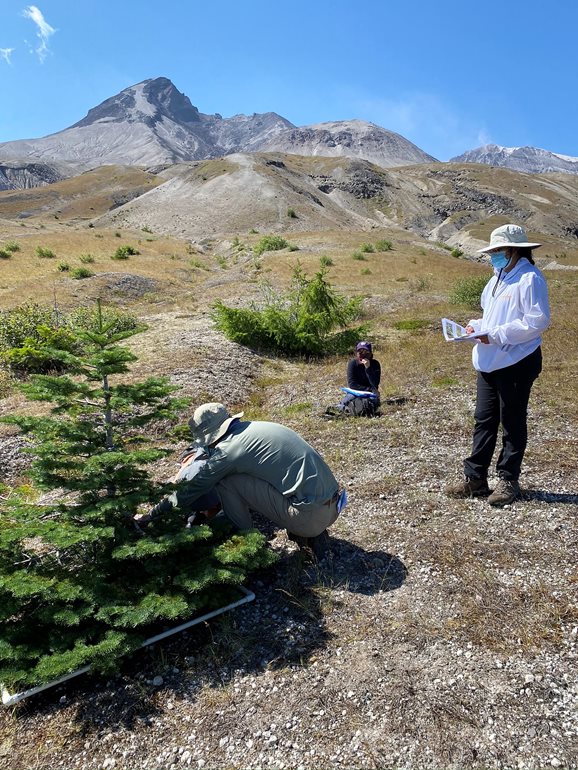
Wachter, who graduated in June 2020 with a degree in Earth System Science, moved gear and collected data. He said all the fieldwork helped him find a job in his field. Wachter started work in March as a wetland ecologist for an Everett-based consulting firm.
He said his most valuable experience as a student at UW Bothell was 130 miles south at a volcano.
“The experience, knowledge and connections gained from this lab go beyond what I would ever imagine from an undergrad research project,” he said. “I can’t thank Dr. Chang enough for providing such a unique experience and giving us so much trust to conduct this research independently.”
